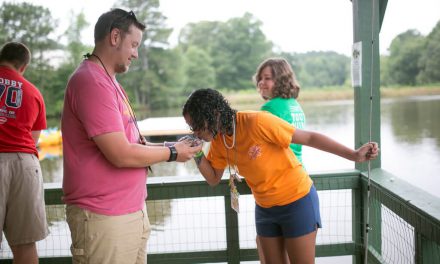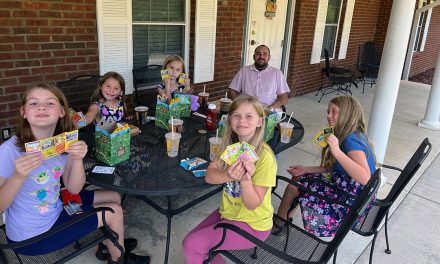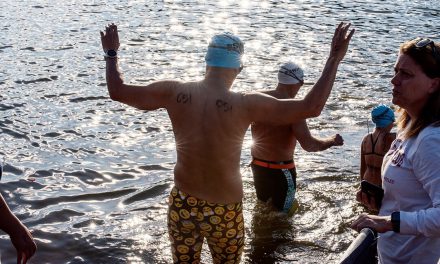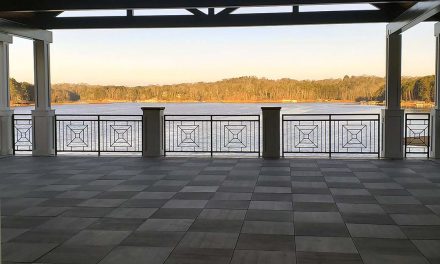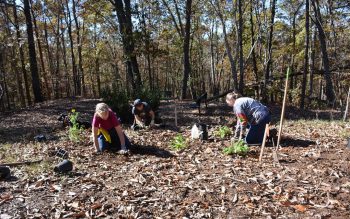
Volunteers work in the Redbud Project
Margaret Rasmussen is on a mission, and when she sets a goal, there’s no stopping her. More than a decade ago, she discovered a pocket of urban forest near Lake Lanier in Gainesville that had an abundance of native plants: wild azaleas, redbud trees, buttonbush, Jack-in-the-Pulpit, sweet shrub, several varieties of ferns and many other native plants.
Through a public-private partnership with Gainesville Parks and Recreation and the non-profit Redbud Project, it’s now a 32-acre nature preserve on Lake Lanier. Fourteen acres were purchased by the city in 2002 as permanent green space to remain undeveloped. Together with 17 acres from Gainesville’s public utilities department and the Martin homestead purchased by the city for the Linwood Drive trailhead, the entire area is called the Linwood Nature Preserve.
“It was an amazing treasure that deserved being protected for future generations,” Rasmussen said. “The urban forest has been set aside as an environmental, educational and conservation site managed by volunteers.”
The property is laced with 2.5 miles of designated trails and includes an Ecology Center that houses the Robert and Wanda Swoszowski Native Plant Conservatory with horticultural displays, the Bruce Doll Nature Art Gallery, and space for community education.
Eco-friendly walking trails wind through ecosystems of oaks, hickory trees and pines, plus pockets of wetlands and prairie. Interpretive signs and kiosks along the trails provide plant identification, habitat information and glimpses of how wildlife interfaces with the area. Benches and viewing decks have also been installed.
“A walk through the preserve gives visitors a chance to step away from the demands and stresses of the day and enjoy a respite surrounded by the sounds of nature,” she said. “Pileated woodpeckers and barred owls live among the oaks and hickories. Wildflowers and butterflies flourish in the prairie meadows. Salamanders play in the flowing streams and fish spawn in the secluded lake coves.”
Volunteers have planted seasonal perennial gardens of flowering plants and shrubs. “Special attention has been paid to attracting pollinators,” Rasmussen said.
The center offers four nature lectures annually in February, April, June and September. Guest speakers present programs about native plants, environmental stewardship, birds and wildflowers. These are announced on the group’s Facebook page that also offers frequent posts about what’s in bloom at the preserve, volunteer opportunities, special events and other up-to-date information.
Volunteer opportunities include:
- Trail stewards who meet the second Saturday of each month for trail development and maintenance, plus help monitor trails for clean-up and safety at their own schedule.
- Program presenters to share about landscape techniques, native plant habitats and good environmental practices in the home garden.
- Administrative workers who can help maintain and develop displays and educational exhibits at the Ecology Center.
- General volunteers to assist with installations and management of various projects.
“As part of a national project, The Homegrown National Park, to connect 20 million acres of natural habitats for plants and animals across the U.S., local Redbud Project volunteers have created or enhanced more than 137 private and public sites in Hall County, criss-crossing more than 274,560 acres of the county,” Rasmussen said.
The Linwood Nature Preserve Ecology Center is located at the south entry to the property at 118 Springview Drive. The trailhead is accessible from 415 Linwood Drive, which is the north entrance.
To volunteer, make a donation or for more information, visit the group’s webpage at www.redbudproject.org or search The Redbud Project on Facebook.

